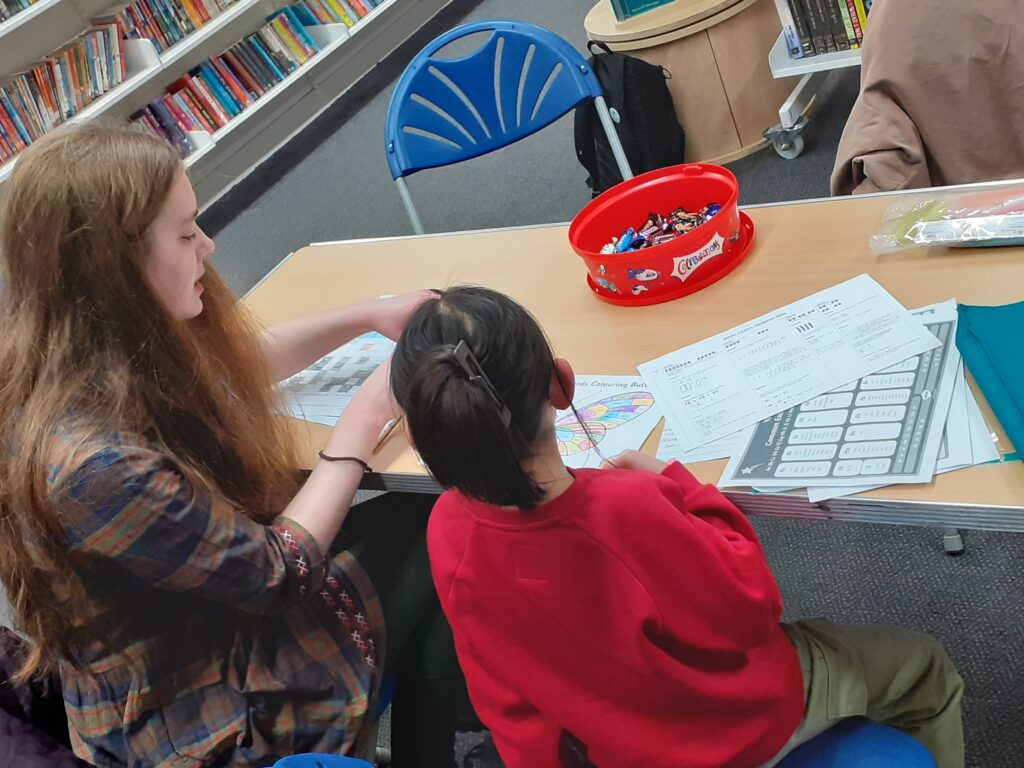For the past 11 years Student Hubs has been delivering student social action activities tackling educational inequality across the UK, training and uplifting university students as tutors to young people in their local communities.
What is educational inequality?
Educational inequality is the unequal distribution of resources across schools including funding, experienced teachers, technology and more. As with many inequalities its impact is most felt by those who have been historically disadvantaged, with young people from lower income backgrounds the most impacted (The Institute for Fiscal Studies). In recent years’ lockdowns and homeschooling as a result of the Covid-19 pandemic caused pre-existing attainment gaps due to this inequality to grow due to the disparity in access to online learning materials, private tuition and free school meals (The Sutton Trust).
Whilst the majority of our tutoring happens within schools, there is a limit in the capacity for the schools facing the most acute impacts of educational inequality – they don’t have the resources and capacity to support an external intervention. To tackle this over the past 5 years our Southampton Hub has been delivering Libraries Plus.
What is Libraries Plus?
Libraries Plus offers open access homework and tutoring sessions led by student volunteers in local libraries. Our team of staff and coordinators work with local libraries to find an open and welcoming space for the sessions. We then recruit and train students to feel confident in safeguarding, their tutoring style and behaviour management, preparing them with key skills including adaptability, communication and coaching. Meanwhile, we promote the opportunity through the library itself, community groups and through local schools in low income areas. Interested families then reach out to us – no questions asked – to let us know their young people could benefit from additional academic support.
By using a neutral, community space to offer this support we ensure the activity is accessible for families that may typically struggle to access extracurricular activities – be that due to lack of opportunity at their school, family working patterns, or ongoing friction in their relationship with the education system. We find that the young people who benefit the most may live in a big family unit, have English as an additional language or be facing persistent childhood poverty.

How Libraries Plus Supports the University of Southampton
We are proud to be a partner of the University of Southampton’s Widening Participation and Social Mobility team, and Libraries Plus is a unique part of our offer which addresses a gap in access and participation, whilst enabling us to use our student and community engagement expertise to meet the university’s strategic needs both for access and civic engagement.
Within Access and Participation Plans (APPs) for universities, the focus for educational attainment sits mainly within school-focused interventions, or interventions on campus. However, we believe that bringing this support out of the classroom and into the community is a vital part of the engagement with both young people and families which is needed to support young people to consider all of their options for their academic and future careers.
Being able to create meaningful and impactful relationships with young people and families, who can access our support regularly or ad-hoc as needed, enables us to be an active part of their community. For many families, crossing the threshold of a university campus has many barriers, which can mean university public engagement events aren’t able to reach the communities and families who need that support. Being present in community spaces; bringing access offers to residents rather than expecting them to travel to university spaces; and a consistent presence across term-terms help to build trust in engagement with our work at Southampton Hub, and that of the university locally.
Libraries Plus as a programme makes no assumptions about what communities need: instead, the focus is on asking what is required, and providing the support where possible, or signposting to other support where needed. We work in close partnership with our school partners locally and the Widening Participation and Social Mobility team, but it’s important that this programme is scaffolded by being present, showing up in the community, and listening openly to the needs of families, communities, and young people. It’s also an example of a programme whose idea initially came from a University of Southampton student volunteering as part of our local activities in schools, and who we helped expand into the success it is today.
Collaboration is the key in access-based partnerships, as echoed by John Blake, Director for Fair Access and Participation in his January speech at the Impetus Third Sector Forum, and as shared by Ayesha Baloch from Impetus in their Wonkhe article.
Libraries Plus is just one example of the ways we are able to achieve the spirit of collaboration in access-based local activities in partnership with the University of Southampton Widening Participation and Social Mobility team.
If you enjoyed reading about Libraries Plus, you might like to read a first-hand account of the programme in which Southampton student Sahiba discusses her experiences as a coordinator.
